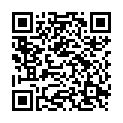|
|
|
| Module code: MAB-1.3 |
|
4V (4 hours per week) |
|
5 |
| Semester: 1 |
| Mandatory course: yes |
Language of instruction:
German |
Assessment:
Written examination
[updated 12.09.2004]
|
MAB-1.3 Mechanical and Process Engineering, Bachelor, ASPO 01.10.2004
, semester 1, mandatory course
|
60 class hours (= 45 clock hours) over a 15-week period.
The total student study time is 150 hours (equivalent to 5 ECTS credits).
There are therefore 105 hours available for class preparation and follow-up work and exam preparation.
|
Recommended prerequisites (modules):
None.
|
Recommended as prerequisite for:
|
Module coordinator:
Prof. Dr. Karl-Heinz Folkerts |
Lecturer: Prof. Dr. Karl-Heinz Folkerts
[updated 17.06.2004]
|
Learning outcomes:
After completing this course, students will have acquired the basic physics needed to understand scientific and technical relationships.
Students will learn some of the fundamental relationships of physics and will gain the ability to apply these basic principles to a broad-range of problems.
Students will acquire an appreciation of the physical laws underlying many technical applications.
[updated 12.09.2004]
|
Module content:
Newtonian mechanics: introduction to the principles of Newtonian mechanics; equations of motion; gravitation; concept of work, power, etc.
Mechanical vibrations and waves (resonance); introduction to acoustics
Introduction to the mechanics of fluids and gases; Bernoulli equation
Electricity and magnetism; electrostatics; Coulomb’s law; electric field, voltage, electrostatic induction, electrical potential, capacity, direct current, Kirchhoff’s laws; superconductivity
Electrodynamics: electrical origins of magnetic fields; magnetic induction, Lorentz force, interaction of matter with magnetic fields; ferromagnetism; hysteresis
Introduction to optics and atomic physics
Introduction to relativity theory
[updated 12.09.2004]
|
Teaching methods/Media:
Lectures
[updated 15.08.2012]
|
Recommended or required reading:
Pitka, Bohrmann, Stöcker, Terlecki: Physik – Der Grundkurs; Verl. H. Deutsch, 2. Aufl. 2001
ISBN 3-8171-1643-8~ € 20
Stöcker, H.: Taschenbuch der Physik; 4. Aufl. Verl. H. Deutsch, 2000
ISBN 3-8171-1627-6: ~ € 30
[updated 12.09.2004]
|


